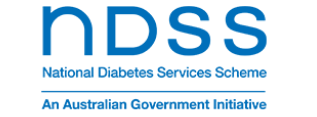This Article is an Introduction to Legislation
Parents or carers need to give appropriate consent to enable school staff to provide students with the support and assistance required to effectively implement the diabetes management plan. This consent gives authorisation for school staff, including the designated staff member, to provide the physical support necessary to carry out key tasks in supporting a student’s type 1 diabetes management including monitoring blood glucose levels and administering insulin where necessary.
Consent from parents or carers is also needed for the disclosure of information. This ensures that there is effective communication and that school staff have the information they need to support these students. This consent permits the disclosure of private and confidential information concerning the student’s type 1 diabetes and health needs to others involved with safeguarding the best interests of students with type 1 diabetes, including other school staff, external agencies (such as the education department or the child’s clinical treating team), and those providing type 1 diabetes education and training to school staff. Information is to be shared so far as is reasonable and required for the effective implementation of the diabetes management plan in the school setting and to support the student.
The consent provided by parents or carers should cover:
- the actions that school staff may take to support the student with their type 1 diabetes (including blood glucose testing and/or administering insulin)
- what was agreed between the parents or carers and the principal and school staff about how the student’s type 1 diabetes will be managed at school (based on the diabetes management plan) and by whom, and that this is updated if there are changes in the school staff supporting the student
- whether the student is capable of self-managing their type 1 diabetes (including whether they are sufficiently mature and able to give their own consent to getting help).
Consent is an important process of information exchange and agreement between parents and the school about how the student’s type 1 diabetes will be supported at school. It is a process that will need to be updated regularly as things change with a student’s type 1 diabetes management and treatment. For instance, when there is a change to the student’s diabetes management plan it is also a good time to check that the consent is also up to date and reflects what is in the plan.
Schools are legally required to obtain consent from parents or carers to assist with specific aspects of type 1 diabetes management and medication administration. Without such consent, the school may be limited in the support that can be provided to students with type 1 diabetes.
School Staff need to ensure that sufficient consent is obtained to render the actions of school staff lawful in terms of providing support to the student.
This can be achieved by:
- obtaining consent from the student’s parents or carers (those who have the lawful authority to consent) to allow school staff to provide physical support and assistance to manage a child’s type 1 diabetes and administer insulin
- documenting the consent from the student’s legal parents or carers in the diabetes management plan and retaining a copy for the school’s records
- ensuring that the consent is specific to what was agreed between the parents or carers and the principal, and details how the student’s type 1 diabetes will be managed in the school environment and by whom – and that this is updated should there be a change in the school staff who support the student; and
- ensuring that the consent of the parents or carers authorises disclosure of private and confidential information concerning the student’s type 1 diabetes and health needs to other parties including school staff, external agencies (such as the education department or the child’s diabetes treating team), and other relevant third parties (such as those providing type 1 diabetes education and training to school staff), so far as is reasonable and required for the effective implementation of the diabetes management plan in the school.
Disclaimer:
The exact legal position that applies will always depend on your individual and surrounding circumstances. The information on this page does not constitute formal legal advice and should not be relied upon as such.



